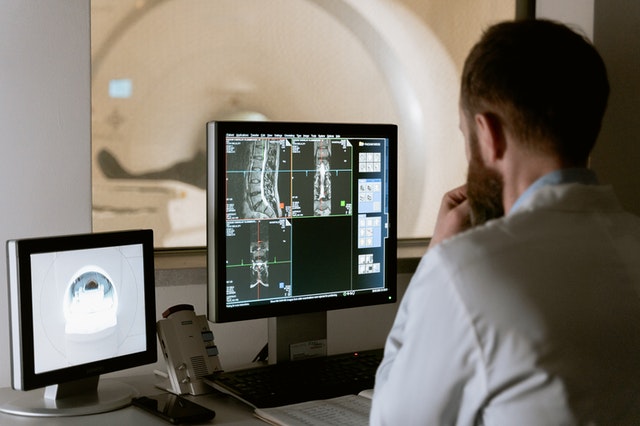Health & Fitness
How to Preserve Bone Health As You Age
As your age it is important to pay more attention to your bone health. This includes having a good diet, getting exercise daily, and removing obstacles in your home that could lead to falls.

Some in the medical industry call osteoporosis the “silent disease” because you don’t know your bones are getting weaker and thinner until you suffer a break. Both women and men can develop osteoporosis as they age, but there are several ways to strengthen the bones and to keep them healthy. Here are some recommendations:
Adding Prunes To Your Daily Diet
An interesting study in 2017 took a look at the nutrients found in prunes and their amazing ability to build up bone formation and improve bone mineral density.
The research found that all it takes is eating 5 prunes a day (100 calories) to help slow and prevent bone loss.
Prunes not only have excellent fiber but also contain lots of vitamin K and potassium for enhancing good bone health. Most folks find them chewy and delicious.
Doctors also advise eating foods containing calcium and vitamin D or taking them in supplement form for maintaining strong bones.
Engaging In Weight-Bearing Activity
Another way to stay ahead of weak bones is by keeping physically active. You don’t have to climb a mountain every week, but bone specialists recommend trying exercises that feature weight-bearing principles.
Some of these include lifting light weights or dumbbells, tennis, jogging, walking, climbing stairs, and dancing to name a few.
When you put stress on the bones, this activity stimulates extra deposits of calcium and encourages bone-forming cells into action.
Fall-Proofing The Home For Safety
If there is an older adult who is concerned about falling, such as tripping over door thresholds, for example, you can fix that.
Even a slight rise in elevation can be a tripping hazard for those with mobility issues. A threshold can be modified with a ramp placed over or up against it, and there are other ways to fall-proof one’s home.
Throw rugs can be another problem, so putting down a non-slip rug pad or rug anchors can prevent a slip or trip.
Good lighting in the home is also key, especially around staircases, and nightlights are useful for hallways and bathrooms late at night.
When you consider that six out of every 10 falls happen at home, and it is more common when your bones are brittle, it is important to keep your personal space safe and accessible.
Smoking And Drinking Alcohol Don’t Help
When you smoke, you’re not only damaging your lungs and airways and making your heart vulnerable to a heart attack and stroke, but the nicotine can destroy other things.
Smoking isn’t good for your bones because it interferes with your blood supply going to bone-producing cells. Nicotine also robs the body from absorbing calcium, which your bones need.
Studies have shown that there is a direct link between tobacco use and decreased bone density.
Also, cigarette smoke has been found to increases the risk of having a bone fracture.
That’s not all. Smoking has been shown to harm bone healing after fracture.
As far as drinking alcohol, moderate consumption isn’t the problem, but for those who drink in excess, the risk of osteoporosis increases, and not just in the elderly.
Alcohol intake of greater than 3 ounces per day (or about 2-3 typical drinks) has been shown to increase bone loss, according to research.
Chronic, heavy drinking at a young age can cause problems down the road. Studies have also found that excessive drinking compromises the quality of the bones and impairs calcium absorption.
Eating Your Vegetables For Bone Health
Here’s a fascinating nugget of bone health wisdom:
We all know that vegetables are good for the body, but they are especially effective at increasing bone mineral density.
Look for green and yellow veggies to support strong bones. Also, onions are an incredible food to consume more of. One study revealed that in women over age 50, those who ate onions most frequently had a 20 percent lower risk of osteoporosis, compared to women who rarely ate onions.
We all try to stay healthy, but often, we forget about the importance of preserving bone health as we age. Consider adding a few of our sensible tips to your diet and routine, enjoy life, and stay active!
-

 Business7 days ago
Business7 days agoS&P 500 Soars in Best May in Decades Amid Tariff Relief and Nvidia’s Surge
-

 Immigration7 days ago
Immigration7 days agoTrump’s Immigration Crackdown: Legal Battles and Policy Shifts
-

 Business7 days ago
Business7 days agoUS Stock Market Soars in May Amidst Tariff Tensions and Inflation Worries
-

 Government7 days ago
Government7 days agoTrump Administration’s Government Reshaping Efforts Face Criticism and Legal Battles
-

 Business7 days ago
Business7 days agoTrump’s Tariffs: A Global Economic Reckoning
-

 Foreign Policy4 days ago
Foreign Policy4 days agoInside Schedule F: Will Trump’s Federal Workforce Shake-Up Undermine Democracy?
-

 Press Release4 days ago
Press Release4 days agoIn2space Launches Campaign to Make Space Travel Accessible for All











